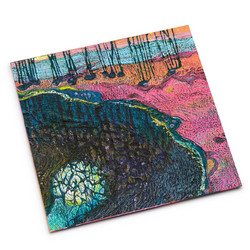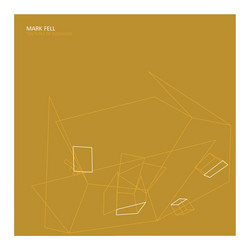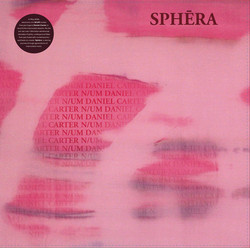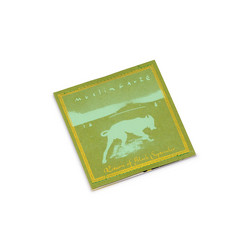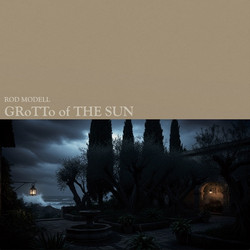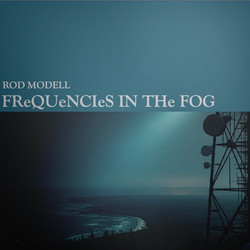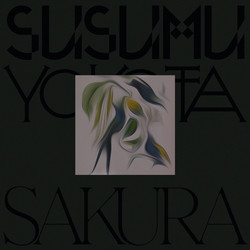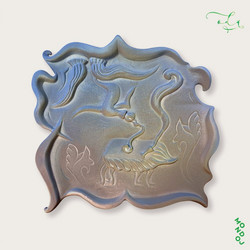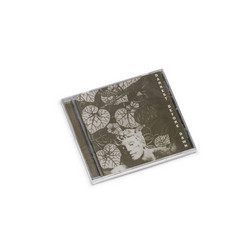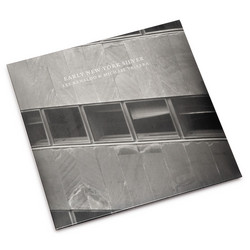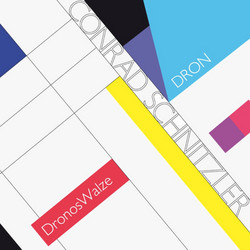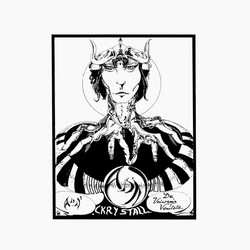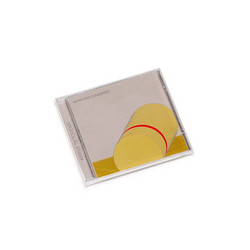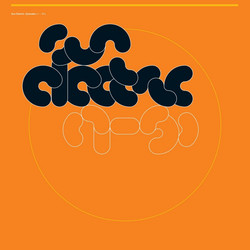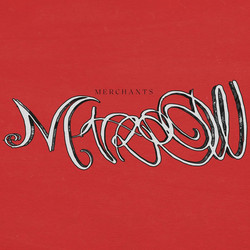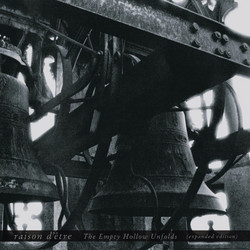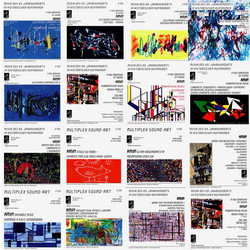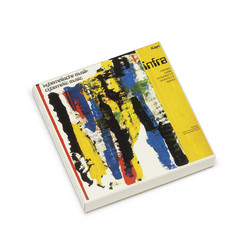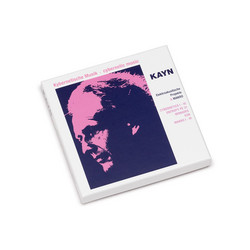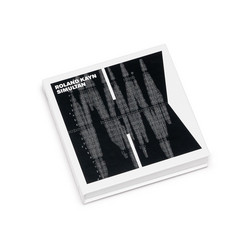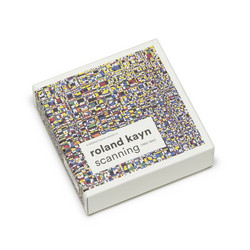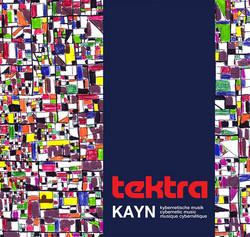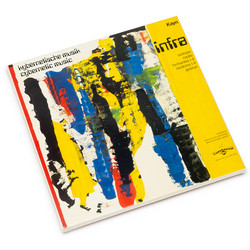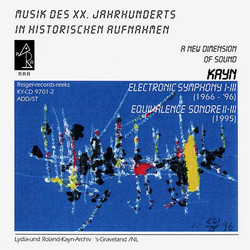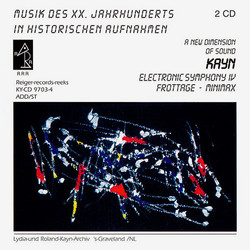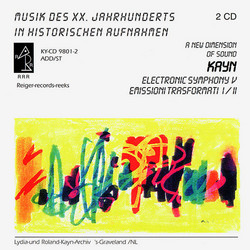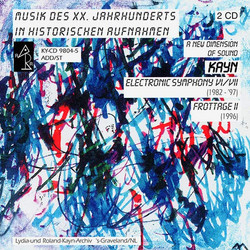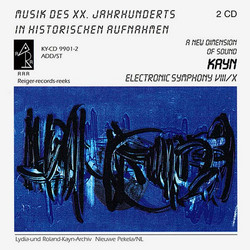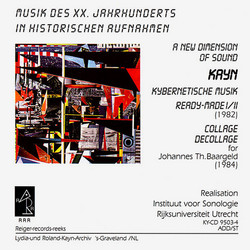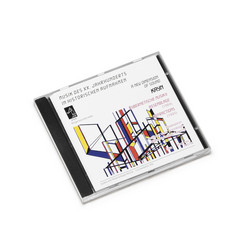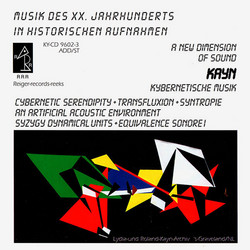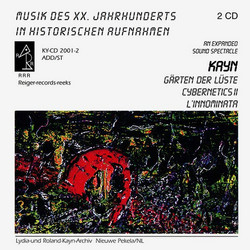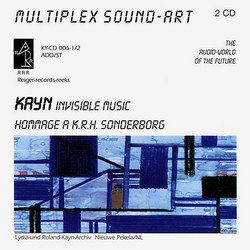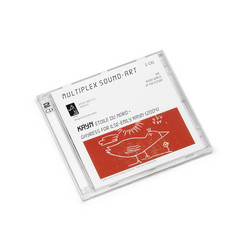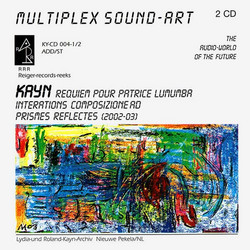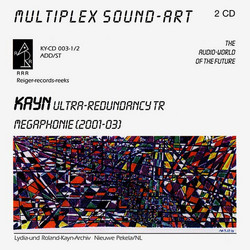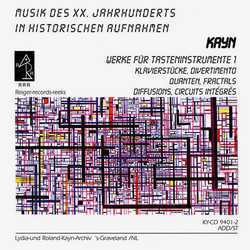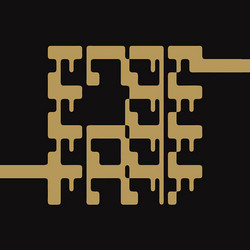1
2
3
4
5
Roland Kayn
Werke Für Orchester / Ensemble (2CD)
**2019 stock** A pioneer of electronic, computer, and instrumental avant-garde music, for the majority of his life, the German composer Roland Kayn remained one of the great unheralded figures in the landscape of 20th century sound - a founding member of Gruppo di Improvvisazione Nuova Consonanza, who delved into singular territories entirely his own. Fortunately, in the last few years, in part due to the release of his monumental work, A Little Electronic Milky Way of Sound, by Frozen Reeds in 2017, and Die Schachtel’s deluxe vinyl reissue of his seminal composition, Simultan, last year, the scope and depth of his efforts have begun to take centre stage in the public mind. Kayn spent most of his career working beyond the normative definitions and parameters of electronic, electro-acoustic, and computer music, endeavouring to contract an entirely new territory of sound which he referred to as Cybernetic Music, a generative process of composition through programming, carefully aligned with a constant relationship between three parameters - the cybernetical, the technical-physical, and the apperceptional. Among the most important of these efforts are Simultan, Makro, Infra, Tektra, and the recently published Scanning.
We managed to obtain limited copies of his sought-after CDs released by Reiger Records Reeks between 1995 and 2006. Werke Für Orchester / Ensemble - Works For Orchestra / Ensemble consists of two CDs and, as per title, includes some of the pieces that Kayn composed for orchestra and smaller / larger ensembles from 1957 to 1974:
Disc 1 (Werke Für Orchester)
Sequenzen (1957) - Uraufführung: Tage für Neue Musik, Hannover 1969
Aggregate (1958) - Uraufführung: Internationale Ferienkurse für Neue Musik, Darmstadt 1959 - Kompositionsauftrag des Hessischen Rundfunks, Frankfurt
Vectors I (1960) - Uraufführung: Biennale, Venezia 1961
Vectors II (1960-'68) - Uraufführung: Festival Warschauer Herbst, Warschau 1972
Signals (1964-'66) - Uraufführung: das neue werk, NDR, Hamburg 1966
Disc 2 (Werke Für Ensemble)
Schwingungen (1961-'62) - Uraufführung: Settimana Internazionale Nuova Musica, Palermo 1963 - Kompositionsauftrag der Freien-und Hansestadt, Hamburg
Allotropie (1964-'66) Allotropia per Orchestra con articulazione multipla - Uraufführung: Festival Warschauer Herbst, Warschau 1966
Phasen (1961) für Sprachklänge und vier Schlagwerkgruppen - Uraufführung: Biennale, Venezia 1962 - Einstudierung Frans Muller - Concertgebouw, Amsterdam 1974
Engramme (1972-'74) für 15-60 disponible Instrumente - Uraufführung: Musik unserer Zeit, SDR, Stuttgart 1980
"At the age of seventeen Roland Kayn composed his orchestral piece No. 1, titled Metanoia. A revision of the piece appeared in 1989. From the outset, Kayn's compositional interest was focused on large orchestras and ensembles of varied instrumentation. Chamber music was almost absent from his oeuvre. Similarly to the first orchestral work, some subsequent scores remained unperformed. Between 1959 and 1980 there were presentations of works in this category during festivals and international concert series. Kayn's early focus was on electronic music. The obstinate resistance in the politics of performance through conventional instruments (the practices of Amsterdam Concertgebouw Orchestra or Berlin Philharmonic come to mind in this context) led him to withdraw from the concert ambit in 1980. These recordings are not without flaws in terms of sound quality and technical aspects of the performance; thus, their principal aim is to represent a historical documentation. Quite frequently, Kayn recorded his unusual musical conceptions by making use of new forms of notation. Due to the general shrinkage of concert rituals in the music of this century, the composer saw electronic music as the only alternative to reach a large audience via digital satellite radio reception. If the thesis of Heinz-Klaus Metzger is correct – namely, a composer cannot be measured by what he creates, but rather by what he does discard – this would be a circumstance where, to a large degree, the recordings presented here fittingly come into focus."
We managed to obtain limited copies of his sought-after CDs released by Reiger Records Reeks between 1995 and 2006. Werke Für Orchester / Ensemble - Works For Orchestra / Ensemble consists of two CDs and, as per title, includes some of the pieces that Kayn composed for orchestra and smaller / larger ensembles from 1957 to 1974:
Disc 1 (Werke Für Orchester)
Sequenzen (1957) - Uraufführung: Tage für Neue Musik, Hannover 1969
Aggregate (1958) - Uraufführung: Internationale Ferienkurse für Neue Musik, Darmstadt 1959 - Kompositionsauftrag des Hessischen Rundfunks, Frankfurt
Vectors I (1960) - Uraufführung: Biennale, Venezia 1961
Vectors II (1960-'68) - Uraufführung: Festival Warschauer Herbst, Warschau 1972
Signals (1964-'66) - Uraufführung: das neue werk, NDR, Hamburg 1966
Disc 2 (Werke Für Ensemble)
Schwingungen (1961-'62) - Uraufführung: Settimana Internazionale Nuova Musica, Palermo 1963 - Kompositionsauftrag der Freien-und Hansestadt, Hamburg
Allotropie (1964-'66) Allotropia per Orchestra con articulazione multipla - Uraufführung: Festival Warschauer Herbst, Warschau 1966
Phasen (1961) für Sprachklänge und vier Schlagwerkgruppen - Uraufführung: Biennale, Venezia 1962 - Einstudierung Frans Muller - Concertgebouw, Amsterdam 1974
Engramme (1972-'74) für 15-60 disponible Instrumente - Uraufführung: Musik unserer Zeit, SDR, Stuttgart 1980
"At the age of seventeen Roland Kayn composed his orchestral piece No. 1, titled Metanoia. A revision of the piece appeared in 1989. From the outset, Kayn's compositional interest was focused on large orchestras and ensembles of varied instrumentation. Chamber music was almost absent from his oeuvre. Similarly to the first orchestral work, some subsequent scores remained unperformed. Between 1959 and 1980 there were presentations of works in this category during festivals and international concert series. Kayn's early focus was on electronic music. The obstinate resistance in the politics of performance through conventional instruments (the practices of Amsterdam Concertgebouw Orchestra or Berlin Philharmonic come to mind in this context) led him to withdraw from the concert ambit in 1980. These recordings are not without flaws in terms of sound quality and technical aspects of the performance; thus, their principal aim is to represent a historical documentation. Quite frequently, Kayn recorded his unusual musical conceptions by making use of new forms of notation. Due to the general shrinkage of concert rituals in the music of this century, the composer saw electronic music as the only alternative to reach a large audience via digital satellite radio reception. If the thesis of Heinz-Klaus Metzger is correct – namely, a composer cannot be measured by what he creates, but rather by what he does discard – this would be a circumstance where, to a large degree, the recordings presented here fittingly come into focus."
Details

